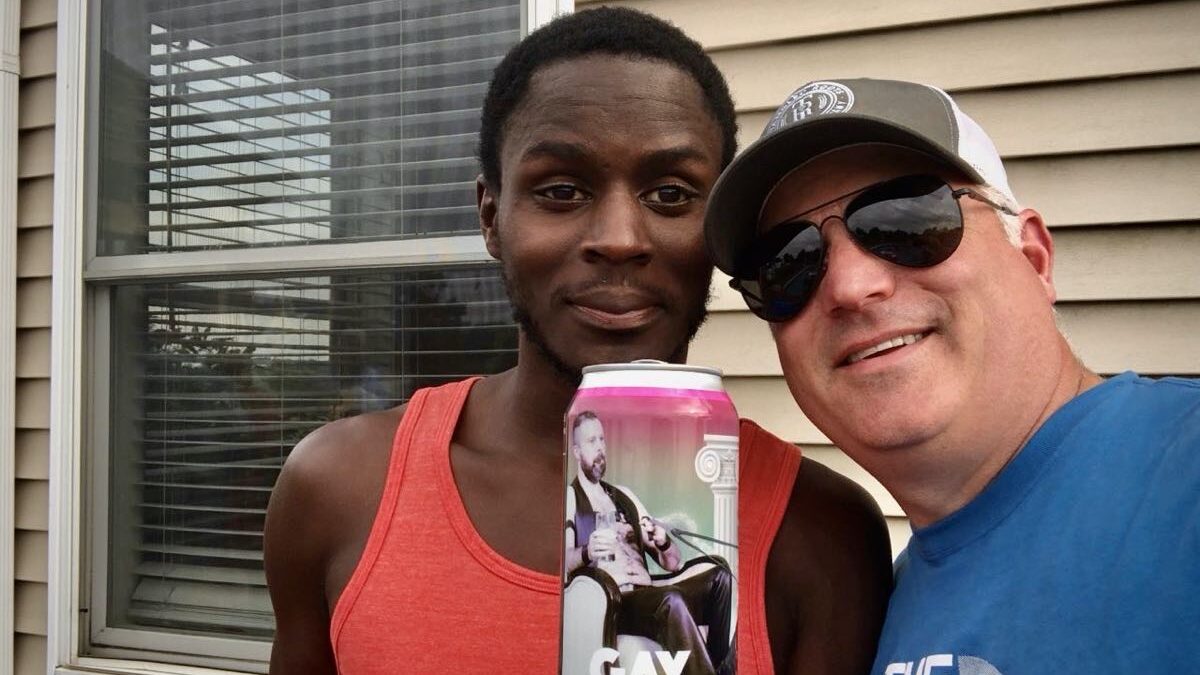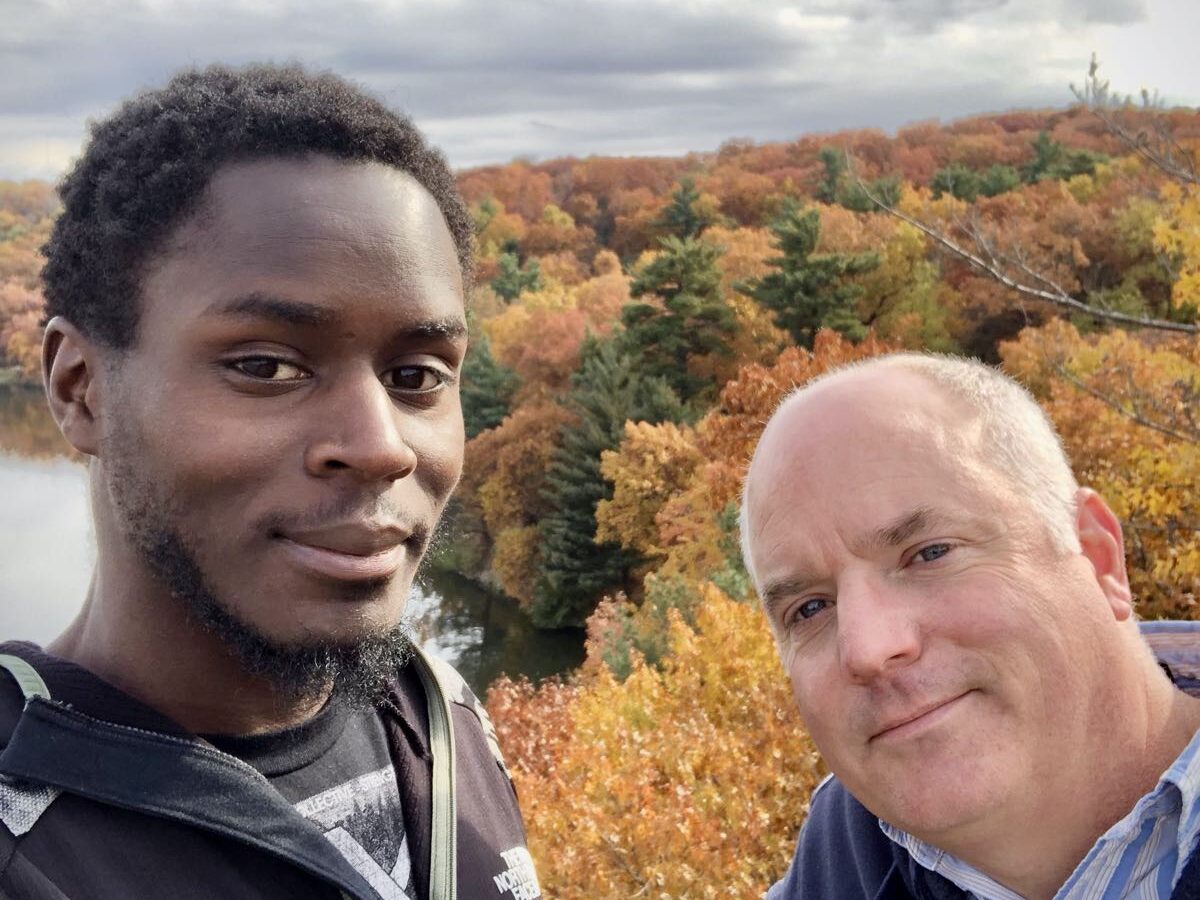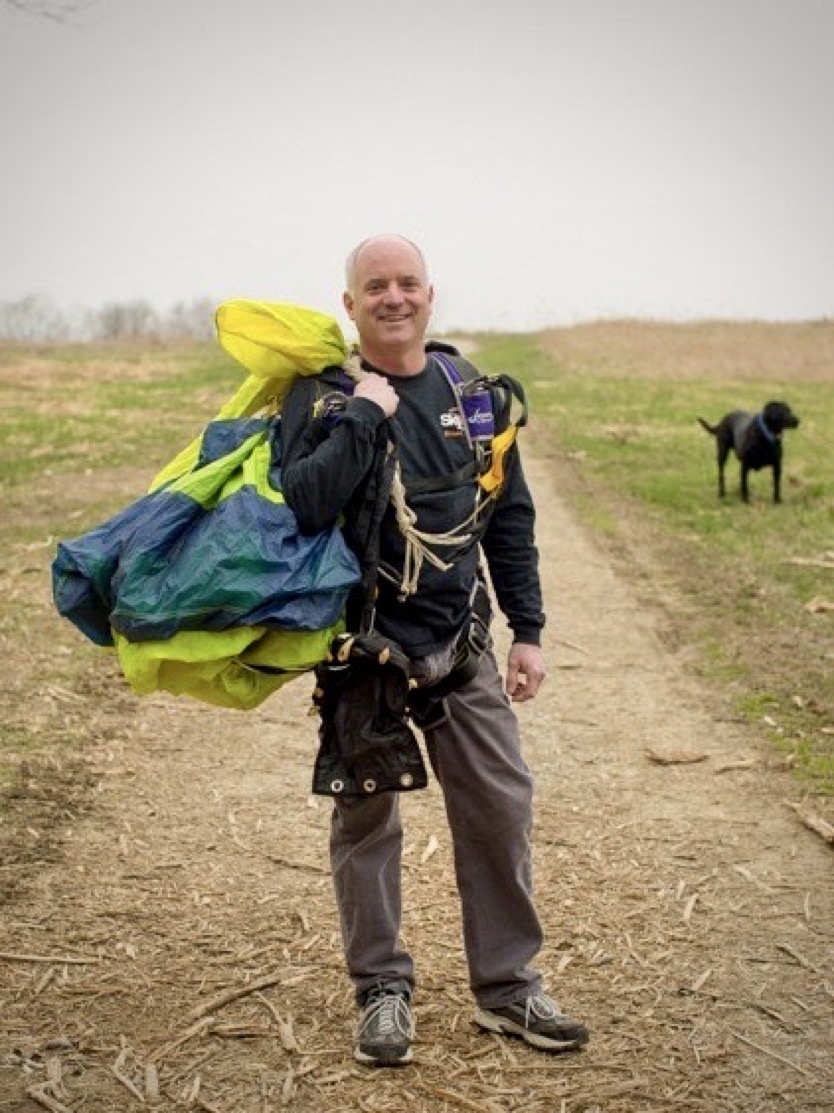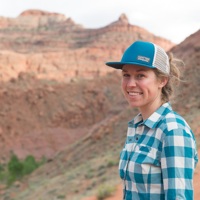Coree Woltering, 30, needed a lot of food in the process of setting the men’s supported fastest known time (FKT) of 21 days, 13 hours, and 35 minutes on Wisconsin’s 1,147-mile Ice Age Trail. As the born-and-raised Illinoisan navigated this route in Wisconsin, which creates a winding hook between the state’s west boundary at St. Croix Falls and Potawatomi State Park out on the Door County peninsula of the state’s east side, Woltering’s daily menu included 8,000 calories in gas-station hamburgers and didn’t stop there. His is most cherished meals were gifted by supporters, who followed along virtually and showed up in-person during his journey.
On day 10, an ankle injury flared to the size of a baseball. As Woltering iced his body, the crew did a Facebook Live stream on the side of road. “People were like, ‘Hey, how are you healing? What are you craving?’ I said, I’d love lasagna and red-velvet cupcakes. People saw where I was located, and met us at the next trailhead with food and cupcakes. And one family said, ‘We have a farm that goes by the trail. We made lasagna for you, and you can stay with us,’—in middle-of-nowhere Wisconsin. We absolutely went, and they put five of us up in their house. I had one of the best lasagnas I’ve ever had,” says Woltering. After they left the farmhouse, many more caloric deliveries were made by fans, which fueled the remaining miles on one of Woltering’s most treasured trails. “I trained for some of my best races, like the Western States 100, on the Ice Age Trail. It’s my home trail,” Woltering says.
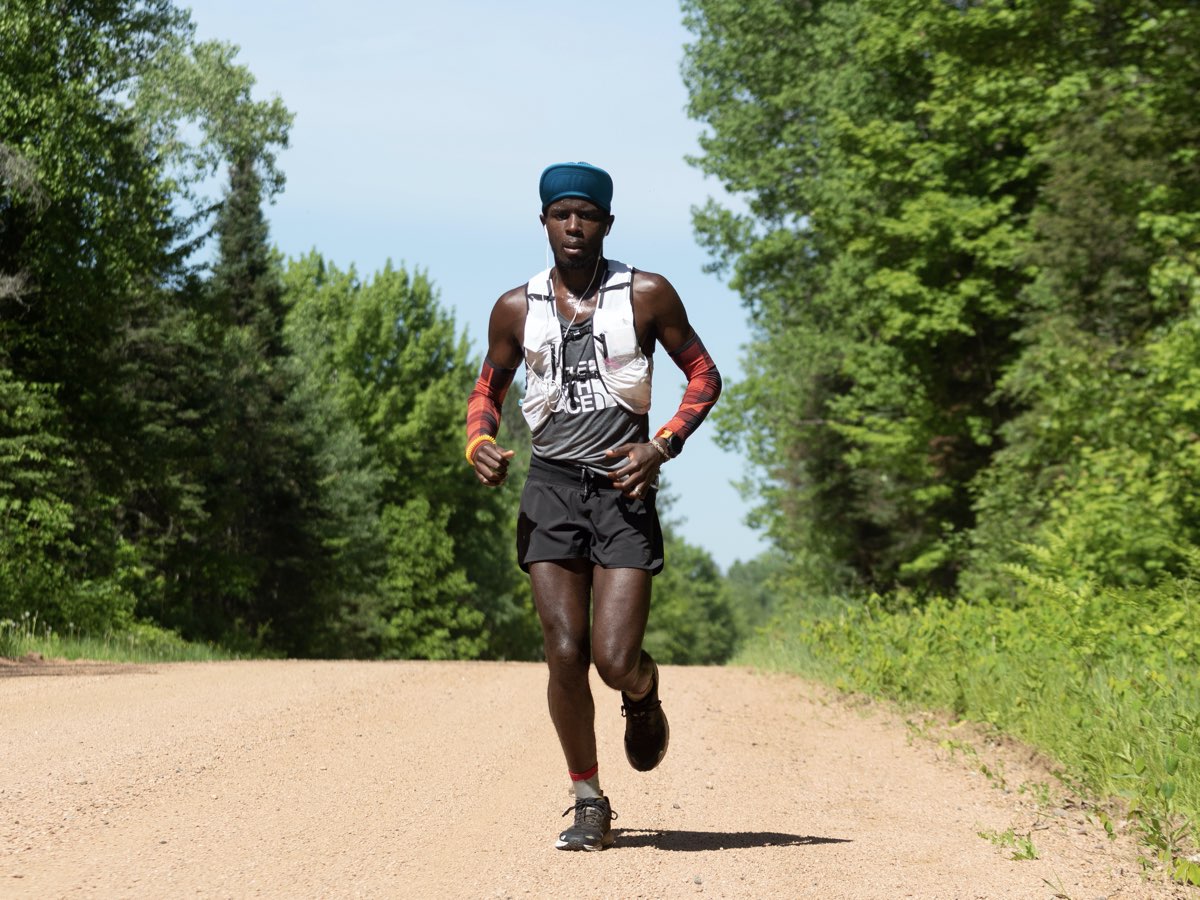
Coree Woltering en route to setting the Ice Age Trail men’s supported fastest known time. Photo: Kevin Youngblood
Being invited to the dinner table by Wisconsinites reflects the cultural generosity and hospitality often shared by Midwesterners, yet is symbolic of a much larger narrative. Woltering, a Black, gay man, ran the route’s rugged singletrack, town streets, and segments of private property during one of the most historic times of civil and human rights unrest in the modern United States—coupled with the global COVID-19 pandemic. From February 23 to May 25 of 2020, several highly publicized murders of Black Americans, including that of runner Ahmaud Arbery, followed by Breonna Taylor and George Floyd, sparked protests to end systemic racism, both nationally and globally. Woltering started his three-week effort on June 1.
Emphasizes Woltering, “There is so much hate and bad news going around in the world right now. But this is a positive story that needs to be told. It’s a person-of-color story. A Black-person story. It’s also a small-town-Wisconsin-USA story. I could not be more thankful to the people of Wisconsin for what they did. They were supportive.” Black people, primarily of African and Caribbean descent, comprise six-percent of the population in the state of Wisconsin. At the beginning of June, people of all ethnicities and races gathered for protests statewide. Throughout the month, Wisconsin National Guard troops were mobilized to assist authorities during the demonstrations, to both monitor for civil safety and intervene during periods of violence that occurred. But Woltering’s experience was far different than what the news reflects.
“Any time we went into civilization or talked to people in the community, they were open and accepting. People were doing anything they could to help me succeed. That was the most encouraging thing of this whole experience,” says Woltering. He started on the trail’s west side, where the first 400 miles are fairly remote. Once the trail reentered civilization, it was a snap back to reality, as he saw an increasing number of hikers, families out running, and people in general. The trail was usually wide enough that he didn’t need to wear a mask, to help prevent the spread COVID-19. But at times, when he stopped off at any public locations, he wore one. And when fans stopped at the crew van to take photos with him, they usually stood six feet away. The only time he felt sketched out was when he crossed a newer segment between 2 and 3 a.m., which crossed various private properties. It was dark, homeowners were hosting bonfires, people could be heard outside, and random gunshots went off in the distance, which rightfully spooked him. But by and large, “It’s not everything you see in the mainstream news. There are some really good people out there,” in the world, he says.
Born and raised in Ottawa, Illinois, Woltering was always a runner. He ran the 200- and 400-meter track distances in grade school, followed by 400- through 1,600-meter events for Ottawa Township High School. Following in the footsteps of his mom, aunt, and uncle, he attended Illinois’s Greenville College (now called Greenville University), located a few hours south of Ottawa, on an academic scholarship. He pursued a biology degree and ran Division III track and cross country in the 400- through 3,000-meter events.
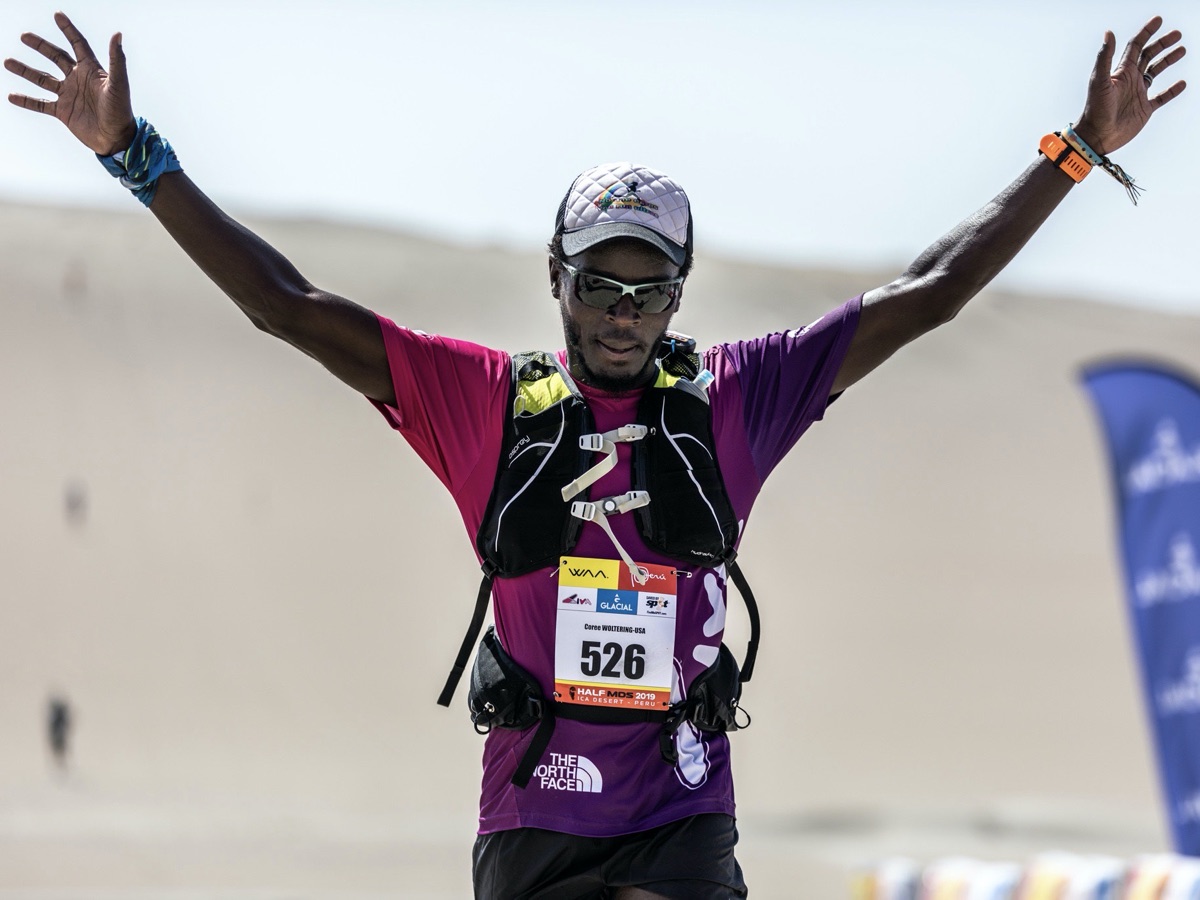
Coree at the 2019 Half Marathon des Sables Peru. All photos courtesy of Coree Woltering unless otherwise noted.
“Looking back, it’s funny to say that I went to a private, Christian college. Even through college, I was a gay man, and I didn’t come out until I was almost 26 years old,” he reflects. At the same time, it made sense for him during that stage of life. “I was born into a family that went to church. My family went to Greenville College, so I was expected to go there. And, Greenville has always had a fairly solid running program,” he says.
Woltering’s running eventually inspired him to try triathlons. In college, “I would get injured a lot while putting up the mileage that I thought I needed to be a cross-country runner and on the team. I also had a swimming background, so I decided that doing a triathlon would be a good mix of things that would tie everything together,” he says. He qualified twice for the Ironman 70.3 World Championships, competing in both the 2013 and 2014 editions.
Also during his college years, Woltering was back home for a visit when mutual friends introduced him to his future husband, Tom Aussem, 51, who also grew up in Ottawa. “I had not come out at the point when we met. So, we would hang out, but I was like, ‘I’m not gay—so there you go.’ He was like, ‘Sure, whatever.’ That went on for a while,” says Woltering, who then moved from Southern Illinois to Colorado for a couple of years post-college to pursue being a professional triathlete.
“I ended up coming out to friends in Colorado,” says Woltering. “[My friends all] said, ‘We always thought you were gay.’ Then, when I came out to people back home, I thought it would be this giant thing. I did it to a group of friends through a text first. Everyone was like, ‘Yeah, okay, and…? We know. You’re just Coree.’ I thought, Isn’t there supposed to be a big moment?”
At first, Woltering and Aussem dated long distance. And during Woltering’s time in Colorado, he discovered ultrarunning when he paced a friend at the 2014 Leadville Trail 100 Mile. He “was immediately hooked on the atmosphere of the race, the scenery, the community, and the idea of running 100 miles in the mountains,” says the bio on his sponsor The North Face’s website. The following month, he raced the 2014 Quad Cities Marathon in 2:37–his first time running longer than 16 miles. That fall, he ran the Malibu Canyon 50k and finished third overall. In 2015, he finished well in a number of different trail ultramarathons, and it had completely taken over his path as a triathlete. Also in 2015, Woltering moved back to Illinois. After a year full of races and transition, Aussem found a special moment to propose, at the beginning of 2016. The duo married that summer.
Woltering reflects, “After I had been engaged for four months and we were getting married, that’s when I posted it all on social media. And, that also had only positive [reactions]. I was like, ‘This isn’t a big deal and nobody cares?’ Everyone just said, ‘We care about you.’”
In the spring of 2016, Woltering ran the Down to Run Endurance Challenge 50k in Florida. It was his first time flying to a race, and he forgot a pair of running shorts. He improvised and threw on his Speedo bathing suit instead. “It was absolutely comfortable and totally fine. I was like, ‘Here we go!’ And ‘Speedo Man’ was born. I won the 50k, and people loved it,” Woltering says.
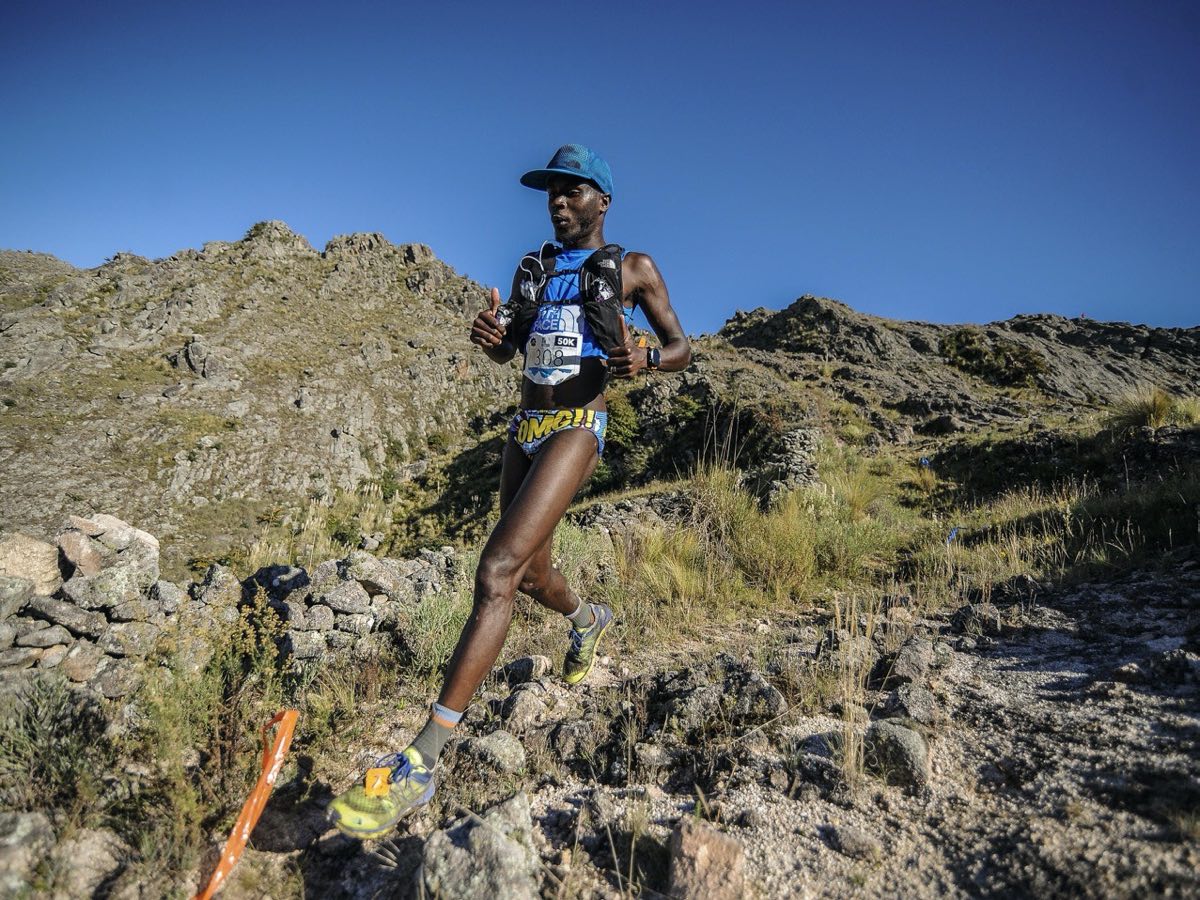
“Speedo Man” racing at the 2019 The North Face Argentina 50k. Photo: @clubdecorredoresok on Instagram
Also an active adventurer, Aussem has been a professional skydiver for 18 years including tandem jumps and competitive skydiving. “He’s a great crew chief, and does a great job of being at my running events that he can make it to. We used to be able to plan more in advance, before I was an athlete with The North Face. Now, there are opportunities that come up with shorter notice, so we’ll have someone else there for me as crew,” says Woltering. When the couple does travel together for his races, they typically fly in, race, and then hit the ground running to see all of the historic sites and art museums.
Woltering received widespread support when he announced his marriage with his husband, though it hasn’t all been easy. He gets frustrated at times with the assumptions that people make based off of their age gap. “Tom is older than me by quite a bit, so that always adds an interesting dynamic. And he’s white. It can be very hard at times. He is a very accomplished sky diver, and he’s done great things. I have done well with running and continue to get better. We’ll go places [like restaurants] and people will look at him and be like, ‘What can I get you?’ And, I’m like, ‘I’m here, too.’ And, people will see me in my element during a trail race and afterward say, ‘You had a great run. Is this your coach?’ I say, ‘No, this is my husband.’” says Woltering.
Aussem’s staging ground for his sky diving is a 15-minute drive away from part of the Ice Age Trail, which is how Woltering initially started to explore the route. “I continued to train on a lot of the southern sections of the trail. Eventually, I started exploring northern sections, too,” Woltering says. In 2018, Woltering says he used the Ice Age Trail as training grounds on his way to taking 25th at the Western States 100.
In other words, Woltering’s fitness and endurance has been well-honed over these past few years. When he pursued the Ice Age Trail FKT, Annie Weiss was the previous overall supported record-holder, which she set in 2018. He beat that record by nearly five hours. He also chipped off the men’s previous supported record, by close to 17 hours, which was formerly set by Jason Dorgan.
Woltering says, “To be here seems insane because I honestly didn’t know what ultrarunning was six years ago. I want there to be someone who looks like me on a poster that others can look up to. ‘Hey, Black people, gay people, the LGBTQ community—we all love the outdoors. We will be out there. And you will see us.”
Throughout his career, Woltering has consciously sought to increase representation of diversity in ultrarunning. However, his FKT wasn’t intentionally planned to take place during the protests and riots—the movement to speak out against systemic racism against Black Americans escalated fast. As he moved forward with this huge physical, mental, and logistical undertaking, he didn’t have enough mental space to fully reflect on the elevating unrest countrywide.
“That has been the extremely hard part. Because, I still don’t know I’ve had enough time to fully think about all of this…. I wanted to be flexible and adaptable. I had a photographer flying in. He is also an African American, and he said, ‘I would absolutely love to be a part of what you’re doing, because of the times.’ The really hard part was, I was trying to not have the times become something about what I was doing at the time I was doing it. Then, he called me on the way and said, ‘I’m flying into Minneapolis, Minnesota, and they are closing down certain streets [for the protests]. It’ll take longer for me to get there than I thought.’ I was hoping to address [the uprise] after this [FKT], but I had to start thinking about it before. If I’m sending my crew, which includes a black gay dude and a white gay dude, and I don’t know what’s going on in Northern Wisconsin at this time. But also, if we’re going up there, we’re going to do it in typical Coree fashion: I’m here. We are going after this FKT. I’m trying to get this job done. Let’s do this,” he says.
Woltering did have two other goals alongside his FKT. He used the effort to raise funds for the Ice Age Trail Alliance and Feeding America. “The Ice Age Trail Alliance is paid for by donations. With COVID-19, they can’t do all the fundraising that they need to do. I’m a fan of supporting trail systems and supporting people exploring outdoors, no matter what that may be for them, whether that’s section-hiking for three to five miles at a time or thru-hiking,” he says.
As a professional coach (he coaches about 15 athletes across the U.S. and Canada) and athlete, Woltering doesn’t currently have a lot of disposable income, but he can use his talents to funnel financial support for good. “I’ve been lucky enough to always have food on the table. I do not believe any kid or person should have to go to bed hungry. In 2018, Feeding America provided 4.3 billion meals. Each dollar donated provides up to 10 meals, which is insane. If you donate $10, that is potentially 100 meals. Our local food bank uses Feeding America as do some in the [Midwestern cities of the] Quad Cities, Chicago, and Wisconsin. I’m choosing to be uncomfortable, as I run, and I can stop that at any point and go home. But if someone is hungry out there, they aren’t choosing that.”
Here is Woltering’s fundraiser page for Feeding America donations, and here is Woltering’s fundraiser page for the Ice Age Trail Alliance.
Despite many race cancellations, Woltering has also managed to race several times in 2020. At print, he is signed up for the Javelina Jundred, which has not yet been canceled. In the long-term, the Ice Age Trail is not yet complete. There will eventually be a full 1,200 miles. “I would totally do it again now to see if can do it faster. If it becomes a full 1,200 miles, I would run it, and I’d love to see what they could do [with the trail extension]. That would be awesome,” he says.
Ultimately, Woltering says, “An openly gay, Black man passed through the [rural] communities of Wisconsin. I wasn’t afraid, because I don’t tend to be—and people were so amazing. All of the positive stories that we have from what happened out there truly make me think we will be okay as a country.”
[Author’s Note: The original phrase “gay marriage” was updated to “his marriage with his husband.” We apologize for using a phrase that inherently reinforces inequality between marriages of various sexual orientations, which was not our intention. Thank you for the opportunity to learn with us.]
Call for Comments (from Meghan)
Leave a comment to share your stories of racing and running with Coree Woltering!
